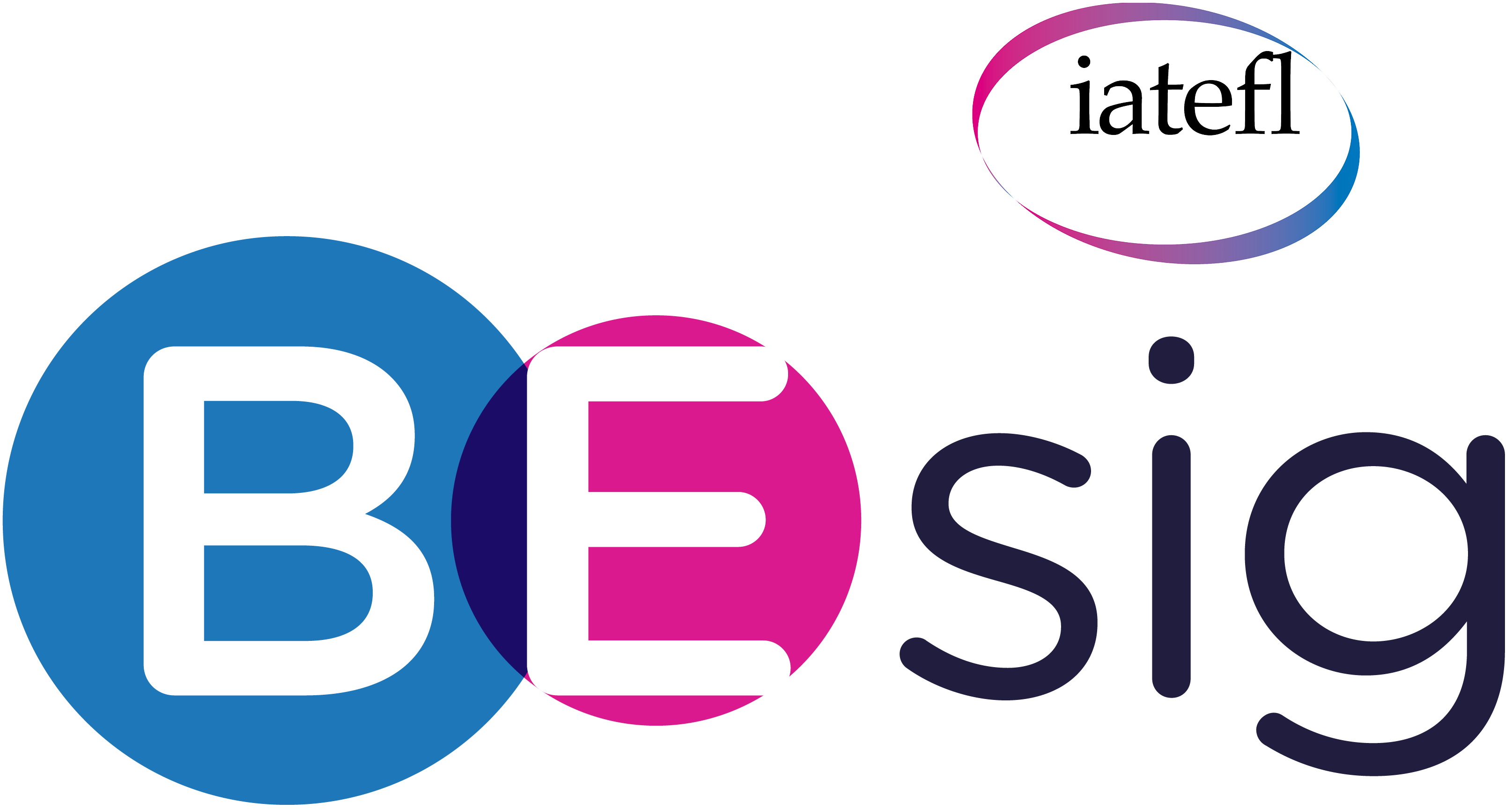
Photos: (l – r) Peer Barber-Meyer and Lynda Lohrey
Pearson
This week’s interview features IATEFL BESIG’s long-term sponsor, Pearson. Find out about their recent research on employability skills and how Pearson has been supporting teachers to make the switch to remote teaching since the start of the coronavirus outbreak. The team also shares some lasting memories of attending BESIG conferences and reveals a couple of problems they encountered along the way.
Company Profile
Pearson is the world’s learning company with more than 22,500 employees operating in 70 countries. We provide content, assessment and digital services to learners, educational institutions, employers, governments and other partners globally. We are committed to helping equip learners worldwide with the skills they need to enhance their employability prospects and to succeed in the changing world of work.
Pearson has been a sponsor and exhibitor at IATEFL BESIG conferences for many years. How many people are usually involved in preparing for BESIG conferences? How long does it take?
It is definitely a team effort. It varies depending on location but usually it’s a collaboration between the local sales team in Germany and the global marketing team in the UK. We need to discuss for example which speakers and topics would be most relevant for the conference themes, which courseware is most relevant at that point in time, as well as what branding and marketing options we want to pursue. Preparations start at least six months prior to the event, and we typically plan to have two team members on the ground at the event.
What lasting memories of previous BESIG conferences does the team have?
Peer driving to Romania with a very full car! And lots of cake – we usually have cake, which is always well-received and people talk about it and even ask about it in advance. We also enjoyed a raffle where we gave away useful things such as an ipad, speakers, and earphones.
And have you ever had to overcome any problems when attending BESIG conferences?
At BESIG in Malta some years ago, the materials and brochures did not arrive from the UK. And Peer caught a 24-hour flu upon arrival. Good thing he arrived a day in advance.
How was BESIG 2019 in Berlin for the Pearson team?
It was actually a bit of a reunion for the team as Peer had been on a sabbatical for a large part of the year, so it was nice to catch up. It’s also always nice to see all the usual suspects from previous years, teachers, speakers, fellow publishers, as well as lots of new faces.
From an exhibitor’s viewpoint the venue was not ideal, and as a result traffic at the stand was low. But those who were there were happy to have a look at the new Business Partner series and request their sample copies. There were lots of questions from delegates about what is new in our portfolio and what the specific ESP content is, so they can find out what differentiates our products from the competition.
Pearson has recently done some research on employability skills. What were the results and implications for teaching business English?
One key message that came out of the research was around the discrepancy between what companies and education institutions think. Only 11% of employers think that education institutions are effectively preparing students for work. Whereas 96% of chief academic officers believe they are equipping their students for future employment.
Business Partner is fully capable of delivering employability content and developing employability skills, which shapes our marketing message. However, not all in the market are fully aware of these results, and for some these are not as relevant as they are for others.
How important are digital materials becoming?
Digital materials were definitely becoming more and more important anyway, although it was surprising that many teachers were still reluctant to embrace the opportunities that digital resources open up to them.
In March 2020 when the COVID-19 situation led to the lockdown, teachers and students alike were suddenly forced to reconsider digital in a whole new light. We were inundated with requests for our remote teaching tools, MyEnglishLab and Digital Coursebooks as many teachers were forced to make the switch more or less overnight to remote teaching.
Teachers do not necessarily appreciate the benefits of each digital resource which makes it more complicated to decide whether this is relevant for their students.
Therefore, we try to offer something for every level of digital ability, ranging from the basic to the more advanced. Especially at universities but increasingly at private language schools, teaching tools such as Active Teach/Presentation Tool are increasingly appreciated. There is more demand for easy-to-use tools like apps for the learner, as well as easy access to the resources for your courses.
What are the biggest challenges facing business English teachers over the next few years? What support is Pearson offering for teachers? (e.g., webinars)
In general, it will be a challenge for business English teachers, in the post COVID-19 economic climate, to convince their clients of the overall importance of English courses. Teachers and schools who have lost business will be trying to build this back up.
In both tertiary and corporate sectors there is a greater need for up-to-date, diverse and specific ESP materials to match specific needs. Pearson regularly sends up-to-date, additional teaching resources to customers using our titles, in order to help them in this respect.
Additional challenges in the corporate sector include teaching digitally, keeping up with competing digital providers, digital delivery of content, and guaranteeing return on investment (ROI) of companies. Pearson offers a wide variety of flexible digital tools that can be used in different teaching environments, whether it be face-to-face, remote, blended or online.
The rise of Digital has meant that Data Protection and Copyright laws are much more prominent than before, which can also be a challenge for teachers, organisations and publishers alike.
Pearson offers support through the local teams of sales reps who are there to help in many ways; responding to queries, training how to use materials, raising awareness among teachers of the employability debate, help with teaching digitally, free teachers sets, etc. Pearson also carries out regular research which is shared via the global website and offers a wide range of teacher training articles, blogs, webinars and videos.
Questions by Maria Szugfil
Editing by Mike Canning and Mandy Welfare
1st June 2020



